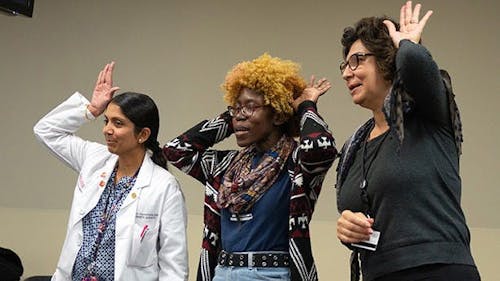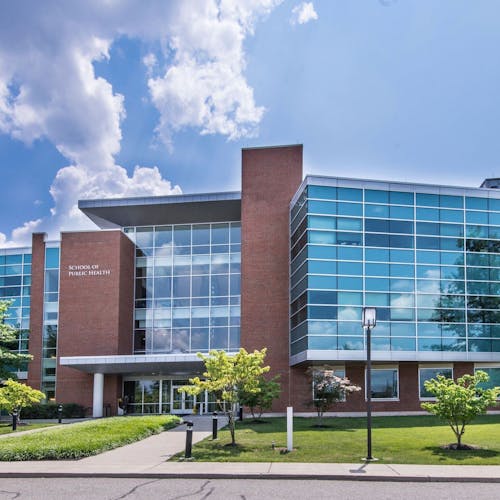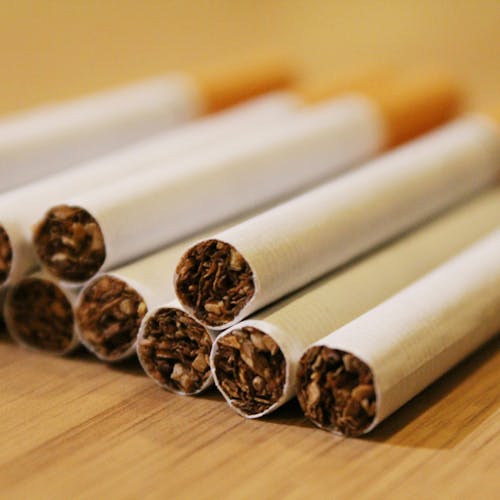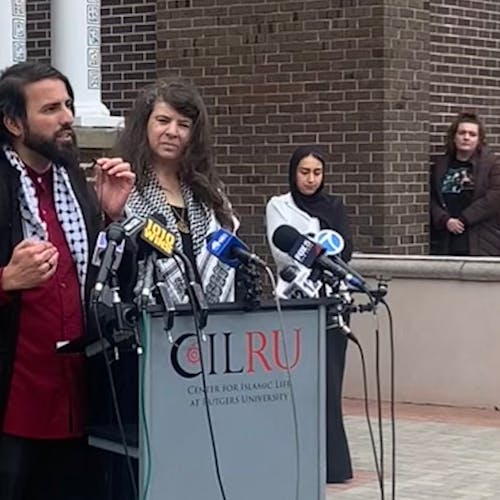Improv helps Rutgers scientists improve communication of complex topics

Pathologists, immunologists, cancer research specialists and surgeons at Rutgers New Jersey Medical School are learning to play improvisation or improv games in order to better communicate their scientific and medical work to each other and the outside world, according to Rutgers Today.
The Rutgers program is part of a nationwide trend in which an increasing number of researchers from different fields of study are trying to better explain their research to the general public.
Nicholas Ponzio, a professor at the Rutgers New Jersey Medical School, and David Dannenfelser, a professor at the Mason Gross School of the Arts, partnered to create the Communicating Science course that includes “Improv to Improve,” a workshop series sponsored by the Rutgers Office of Academic Affairs and intended for those with busy schedules.
“Scientists and healthcare practitioners have to move beyond complicated jargon to find a common understanding and consider the other person’s point of view when discussing highly technical information,” said Dannenfelser, who is also an instructor of the improv workshop.
An example of an improv game entailed one person pretending to be a time traveler from 300 years in the past and another person pretending to expect a phone call, according to Rutgers Today. The improv begins when the latter has to explain how cell phones function before the former accuses them of being a witch.
The course was created to help medical researchers and clinicians learn to speak to non-scientists, such as patients, policymakers, taxpayers and prospective donors, in an effective and plain way.
Ponzio created the idea after taking a six-month sabbatical in 2015 to study improv at the Alan Alda Center for Communicating Science at Stony Brook University in New York, according to Rutgers Today.
“The methods we use in the ‘Communicating Science’ course fill a void in the doctoral program at Rutgers School of Graduate Studies by challenging trainees to think,” Ponzio said. “We’re providing trainees with additional ways to communicate their cutting edge scientific research more clearly, vividly and understandably to diverse audiences.”
The workshops will continue every Friday through Nov. 9.
Some have called them effective at emphasizing to medical researchers the importance of communication, along with their research.
“Dr. Ponzio’s workshops really helped me understand that we spend too much time researching and not enough time on communicating even though communication is essential to helping others benefit from our findings and to secure funding for expanded study,” said Qunfeng (Frank) Wu, a cancer research associate at New Jersey Medical School.
Overall, Ponzio said he hopes to expand the program to other disciplines and people at the University.
“Biomedical research scientists aren’t the only ones who have trouble communicating,” he said. “Rutgers students and trainees in additional science and health related areas, as well as business, law and other professions, can use help discussing their work. This really could be part of something that benefits people from all schools and departments.”



